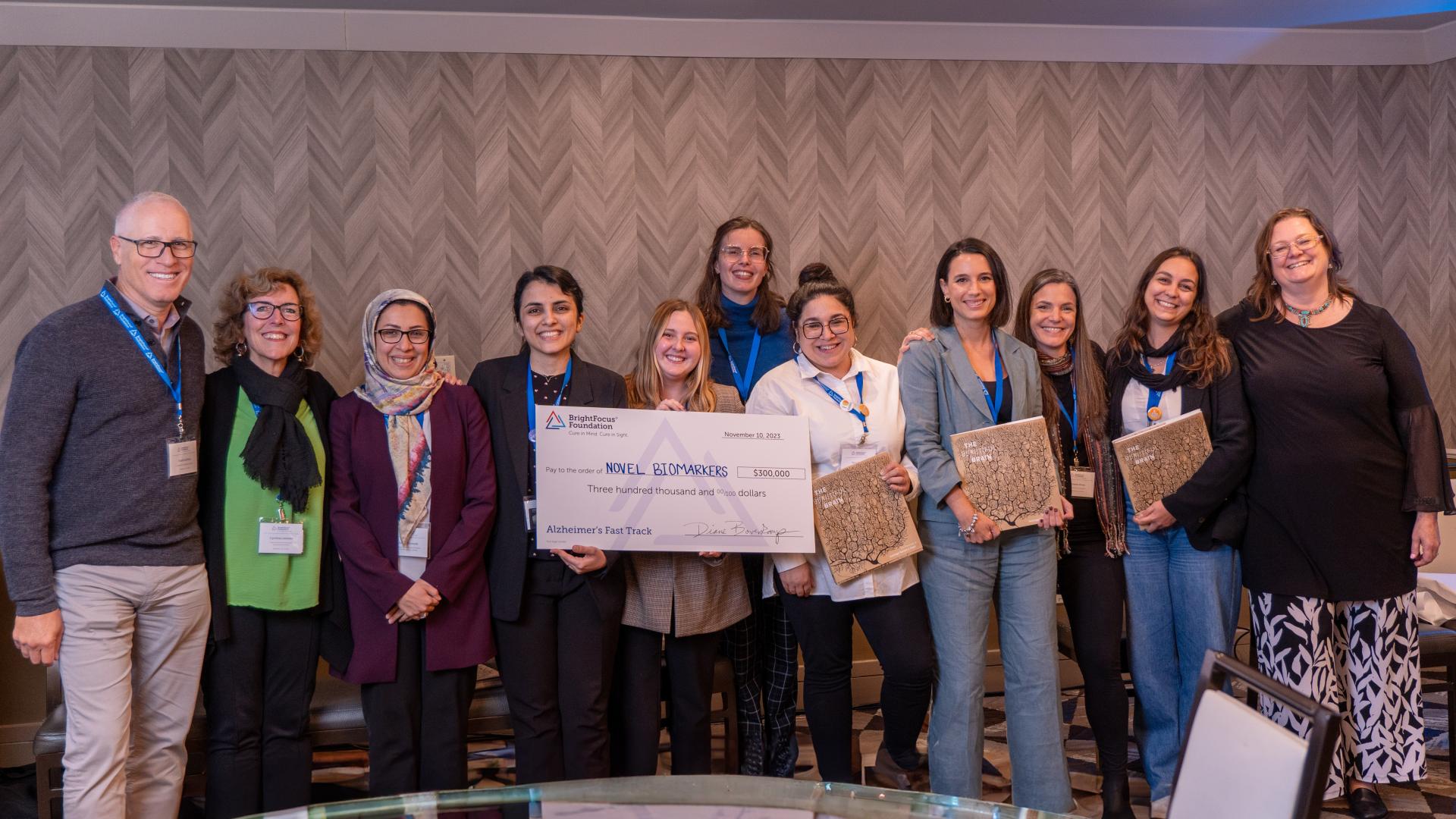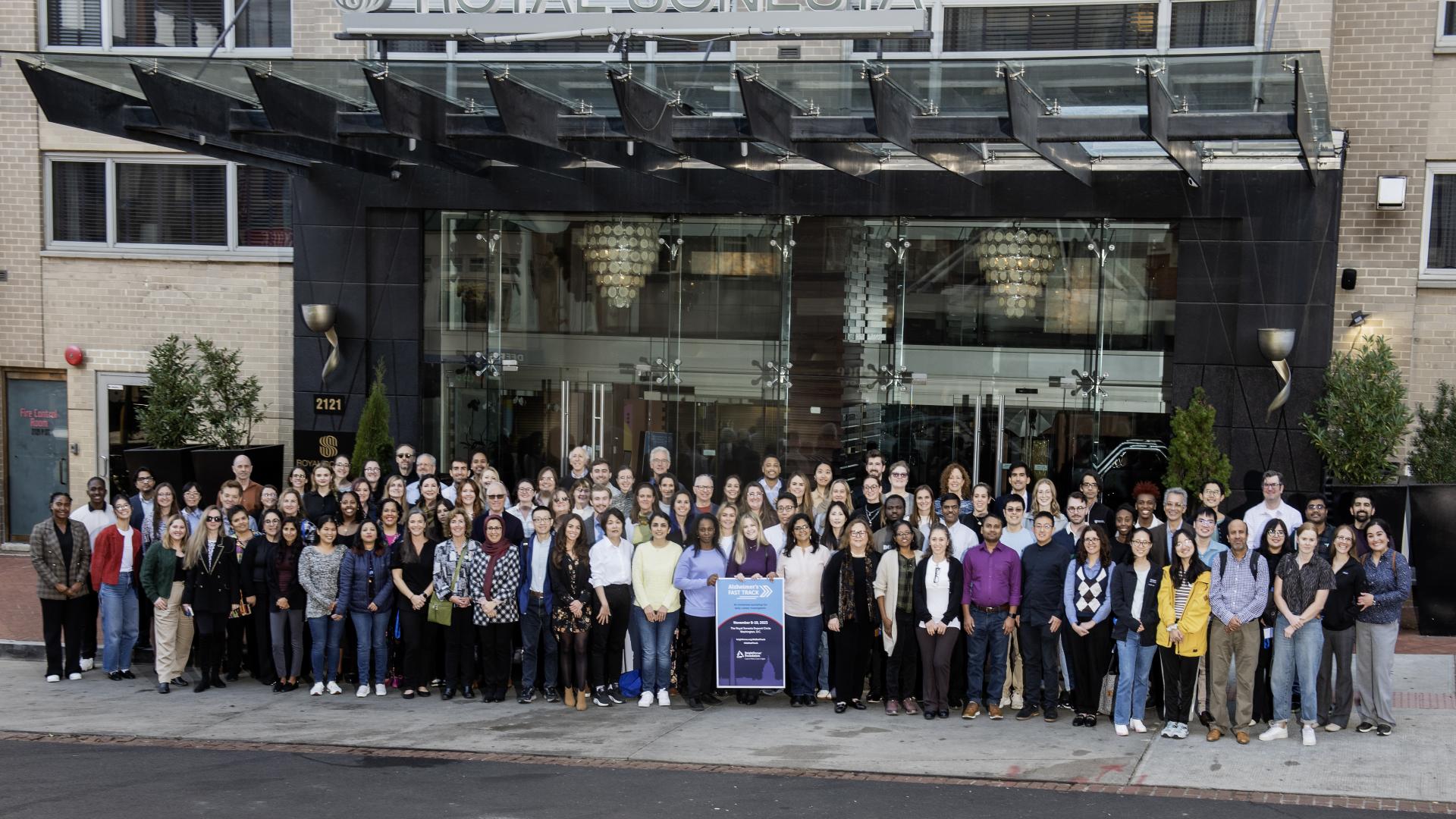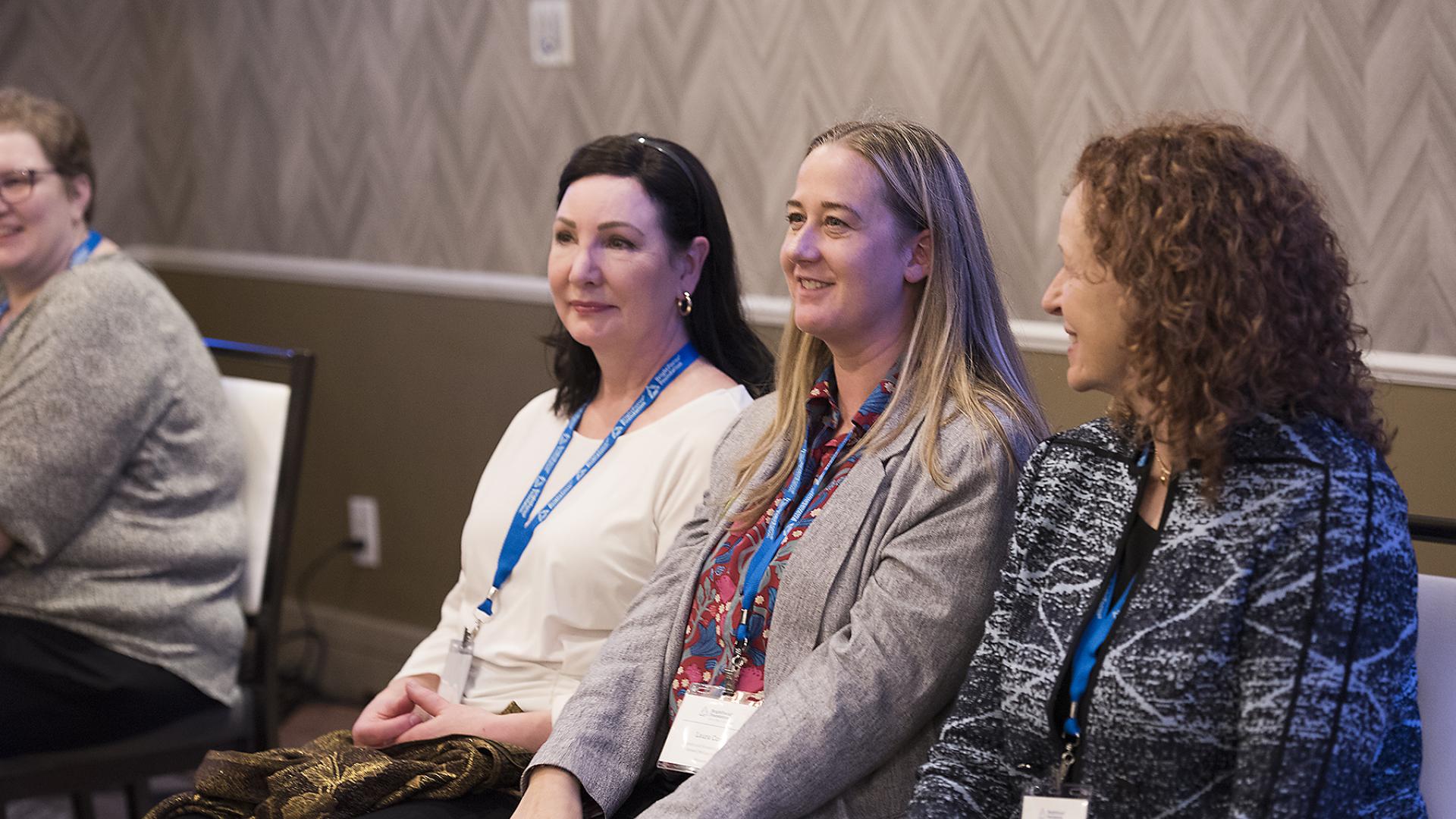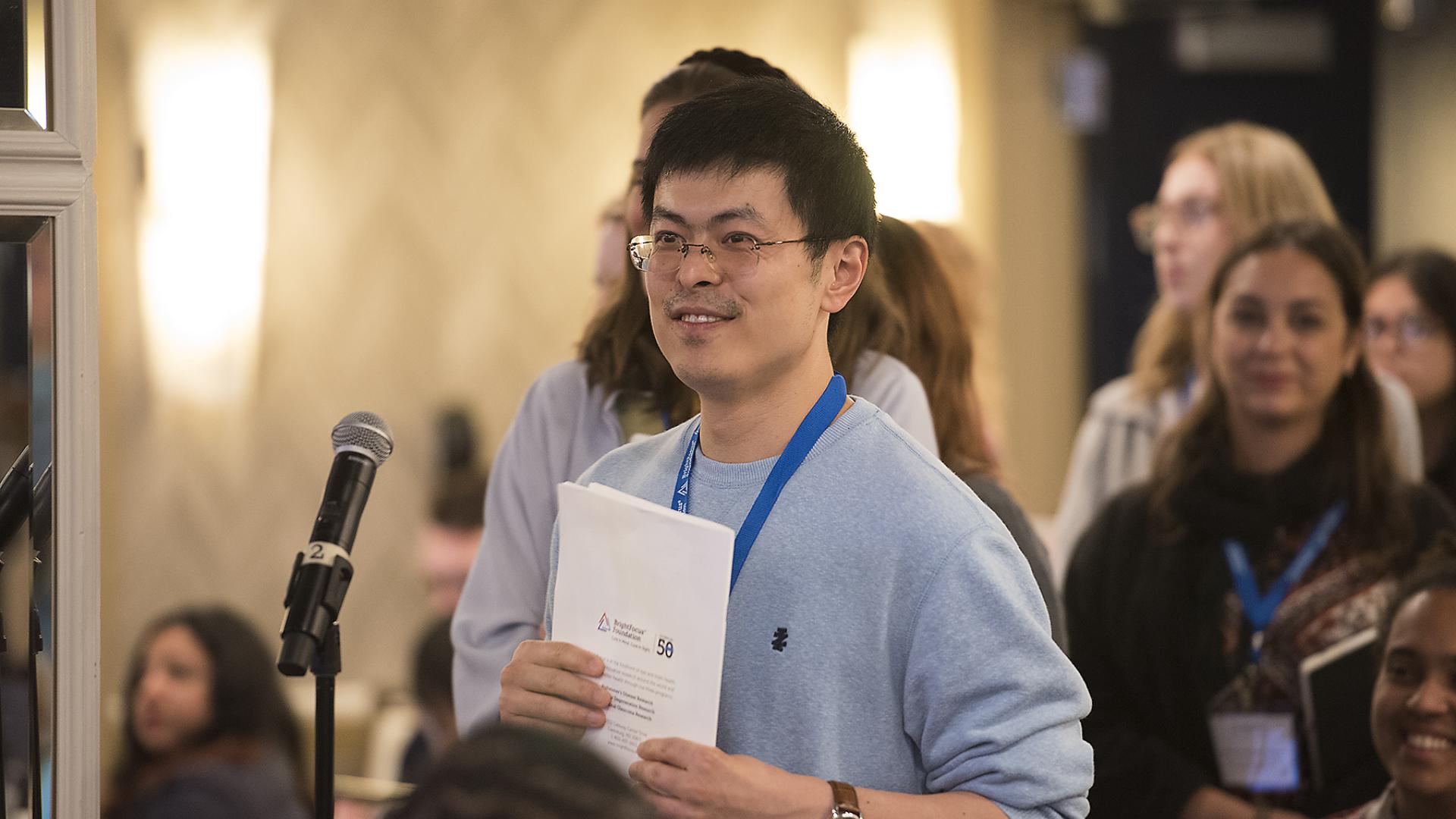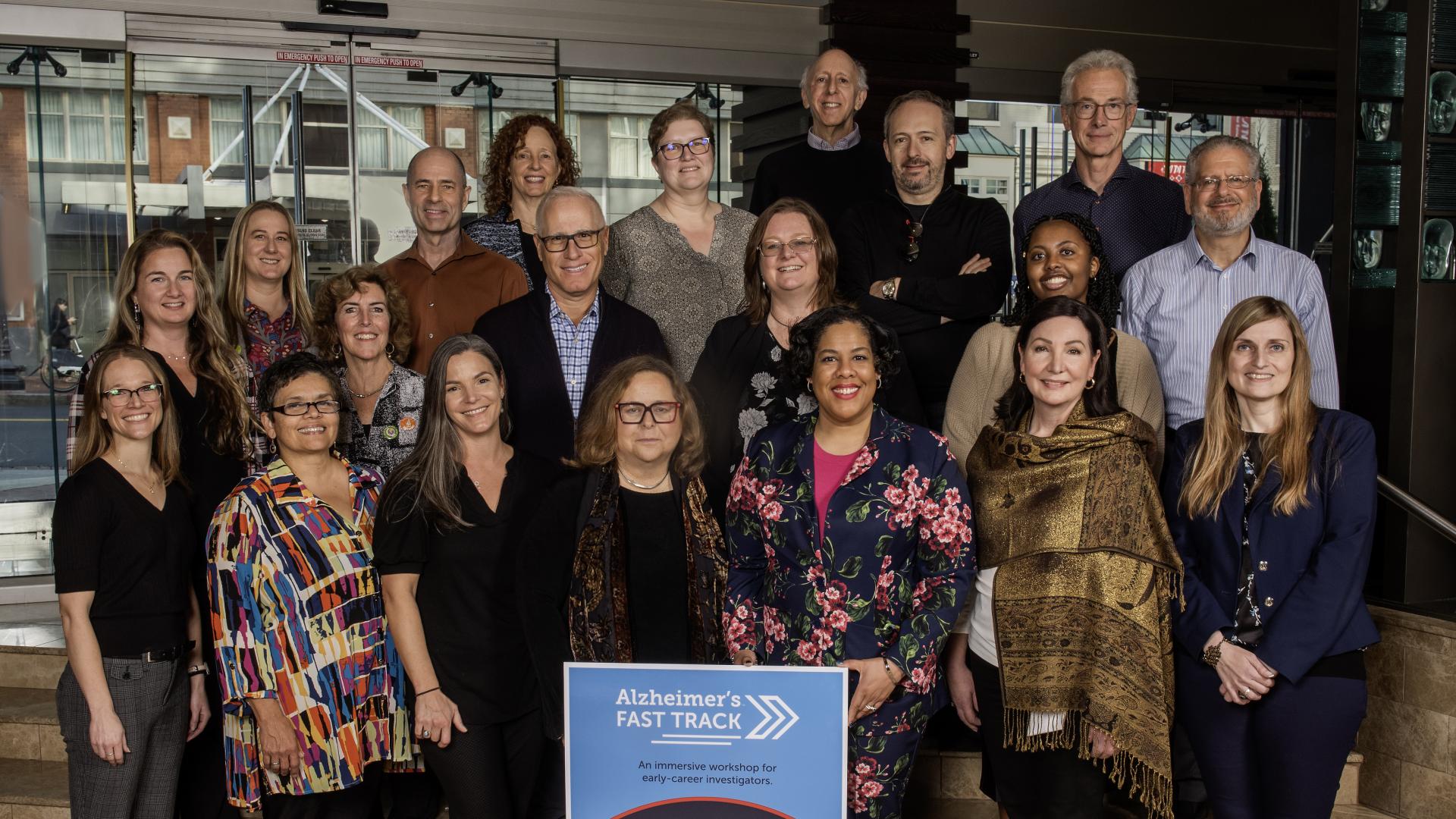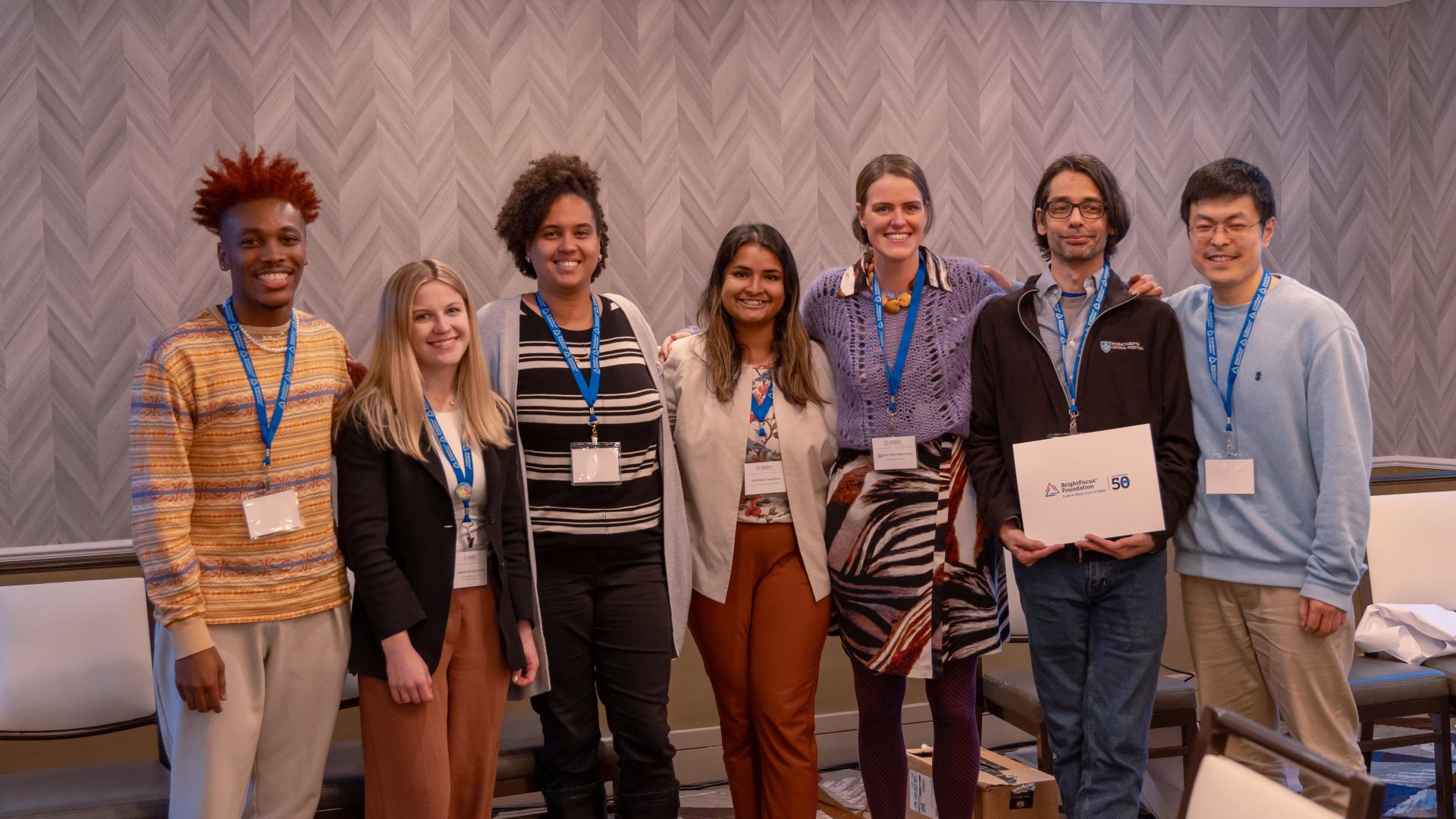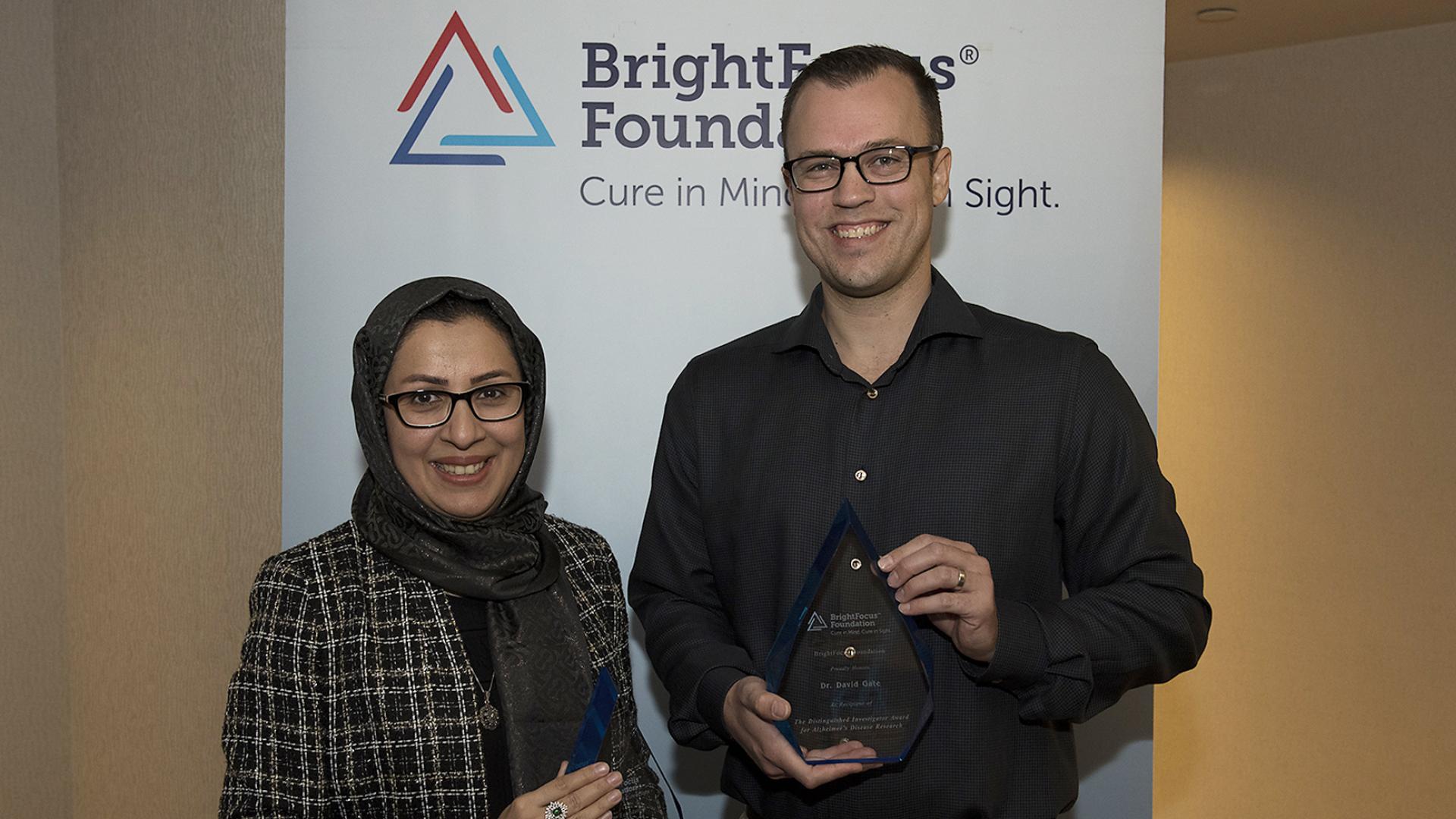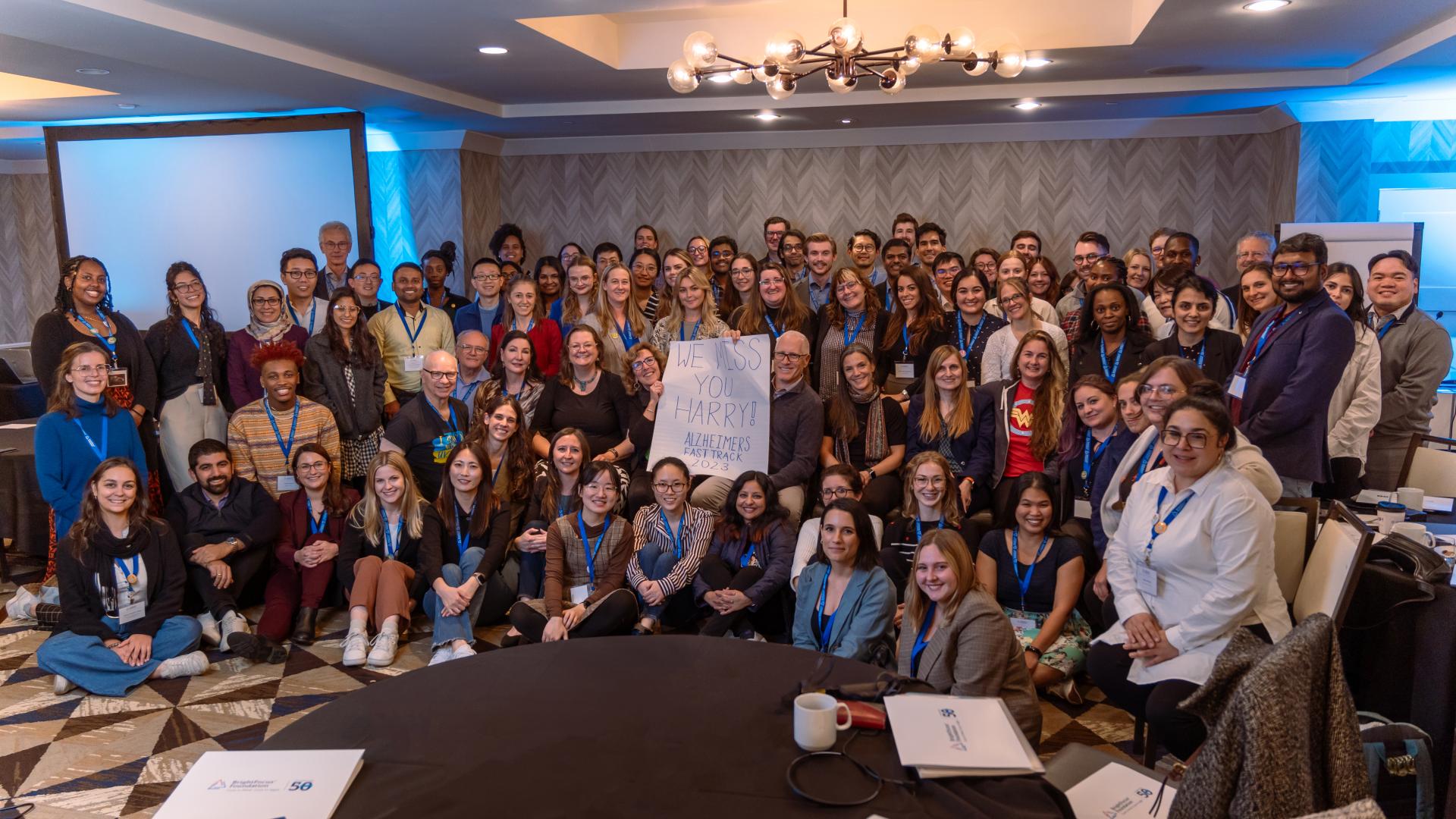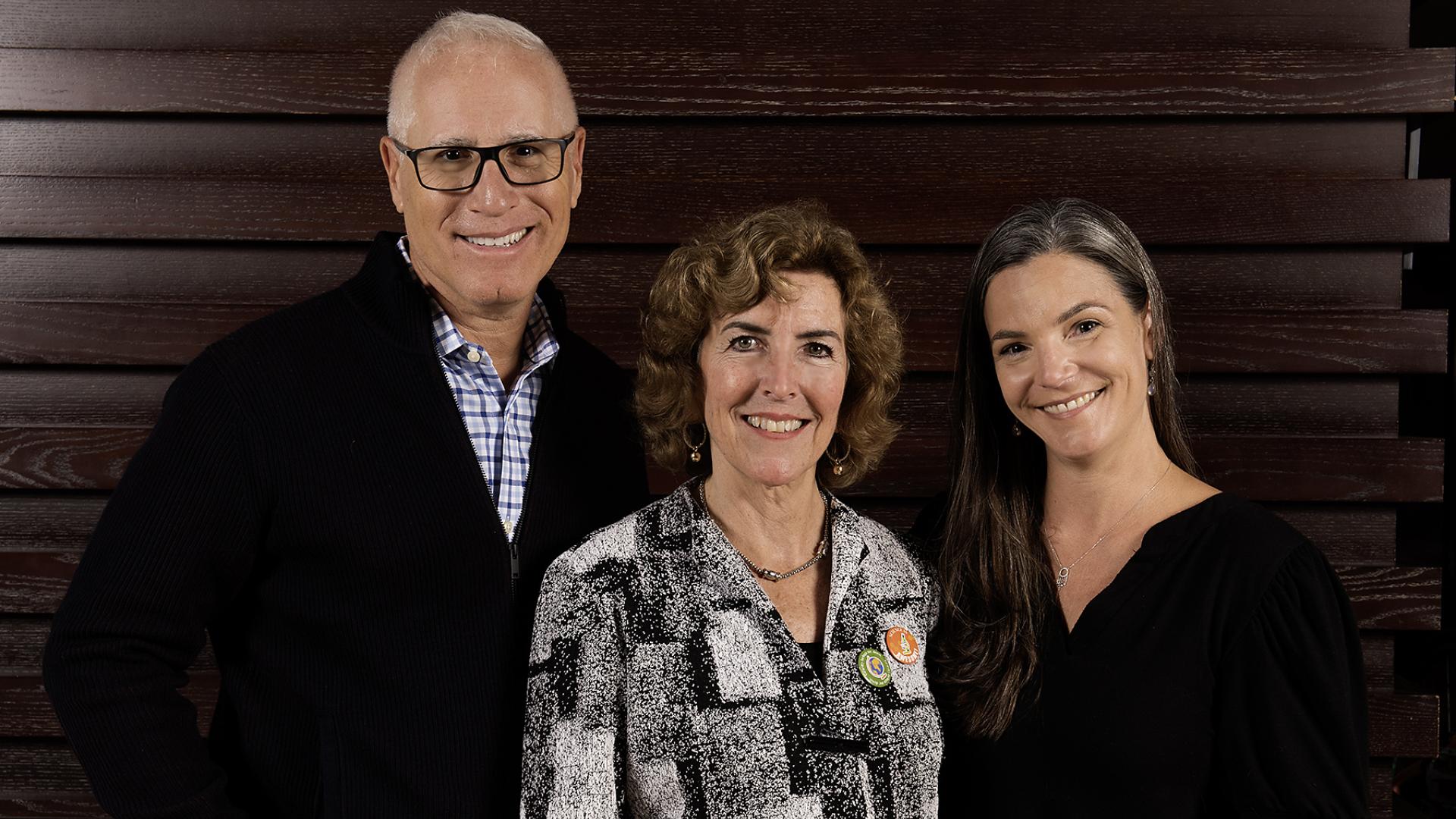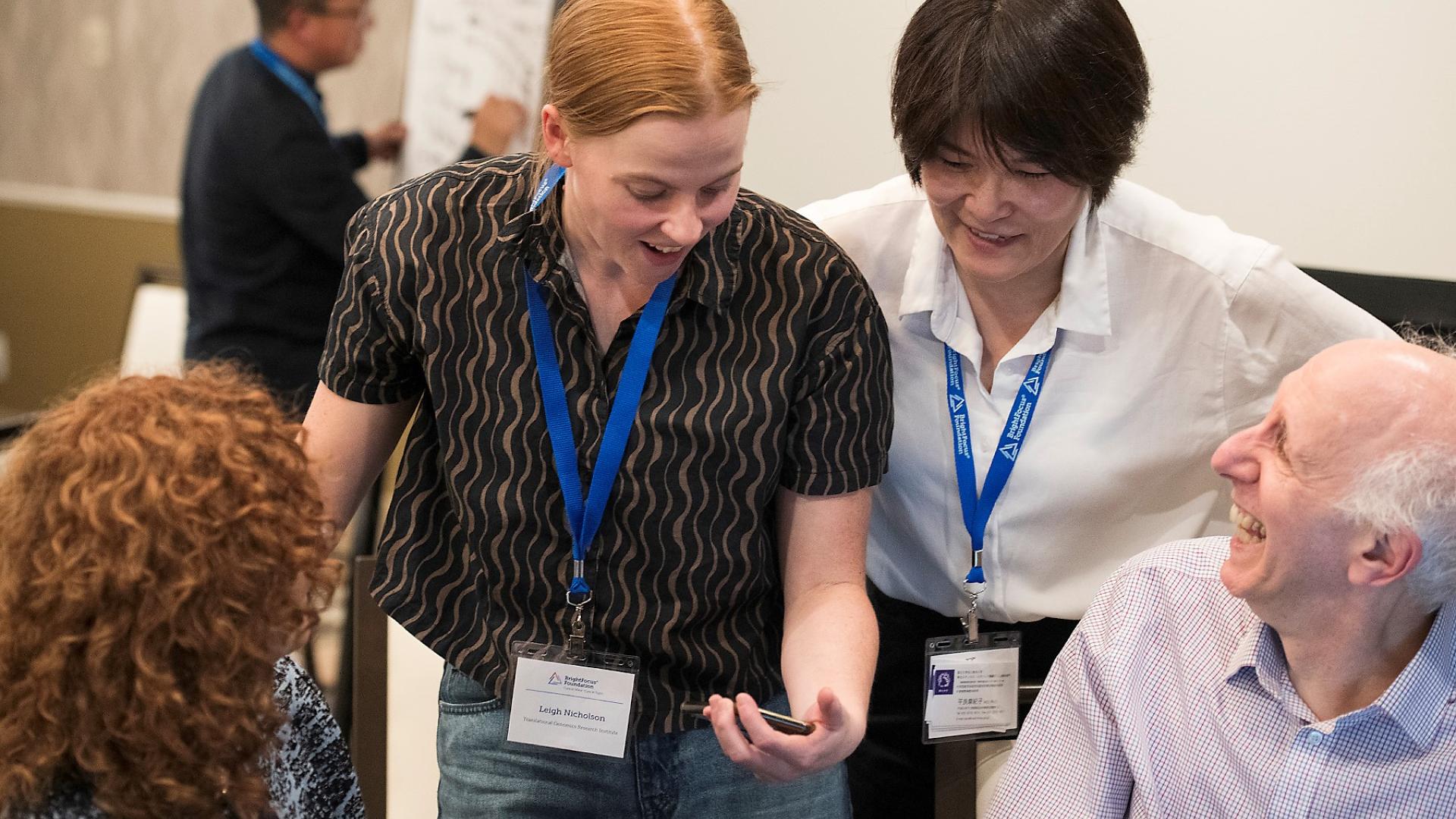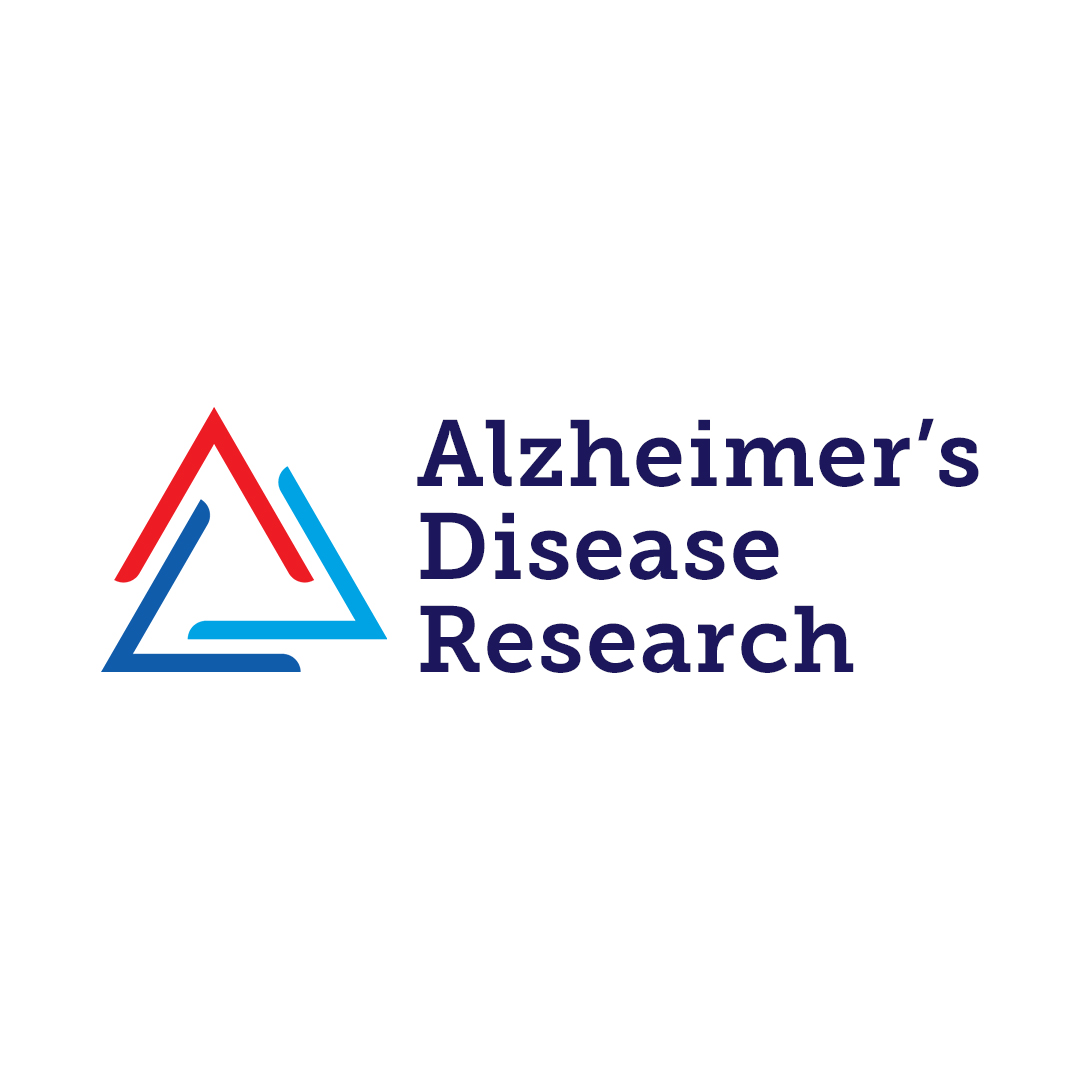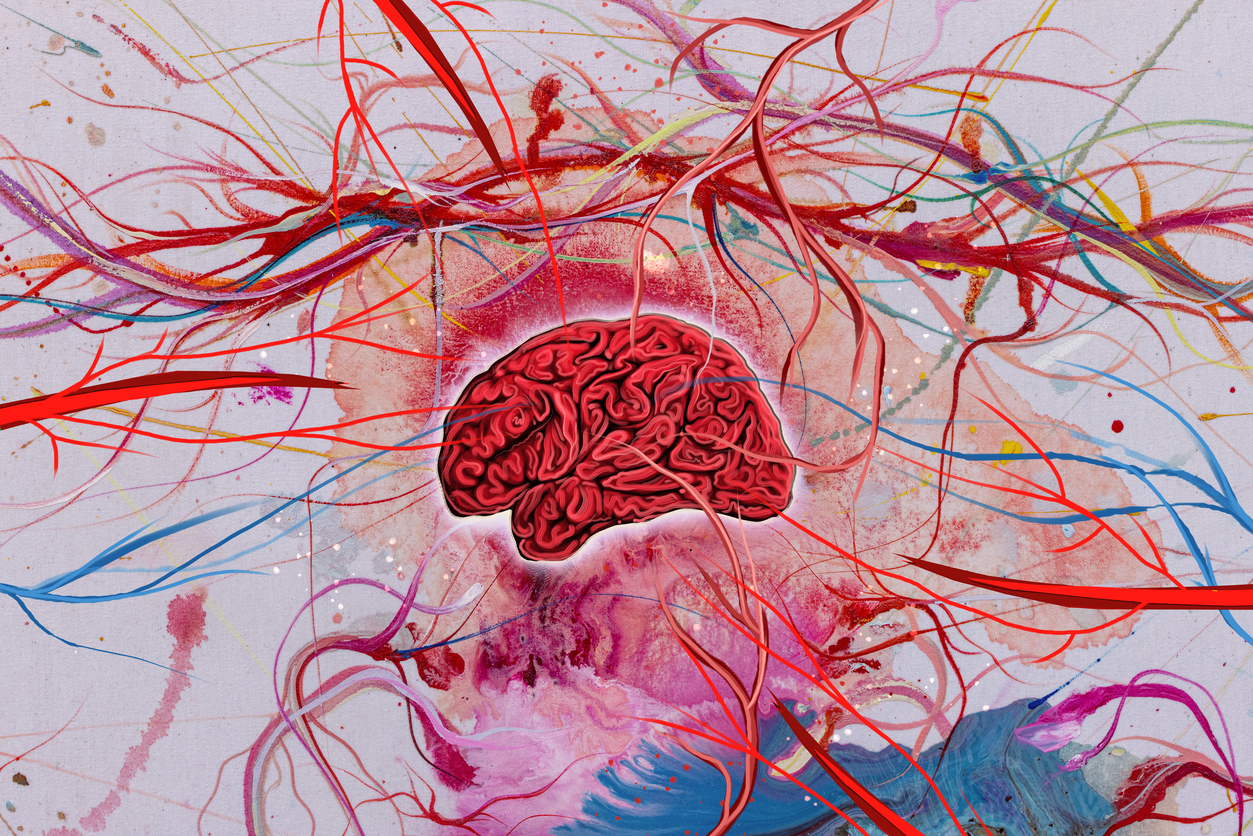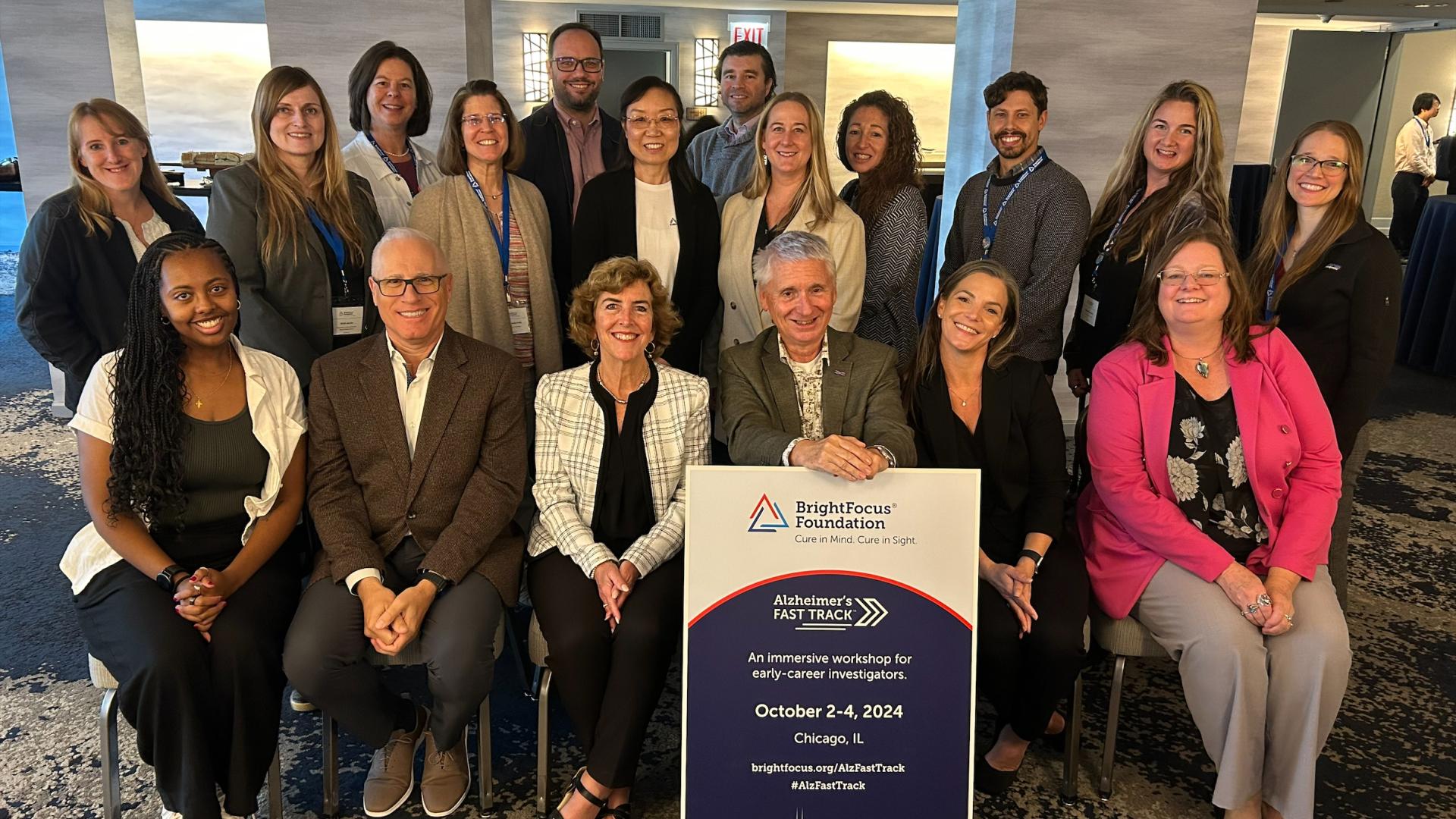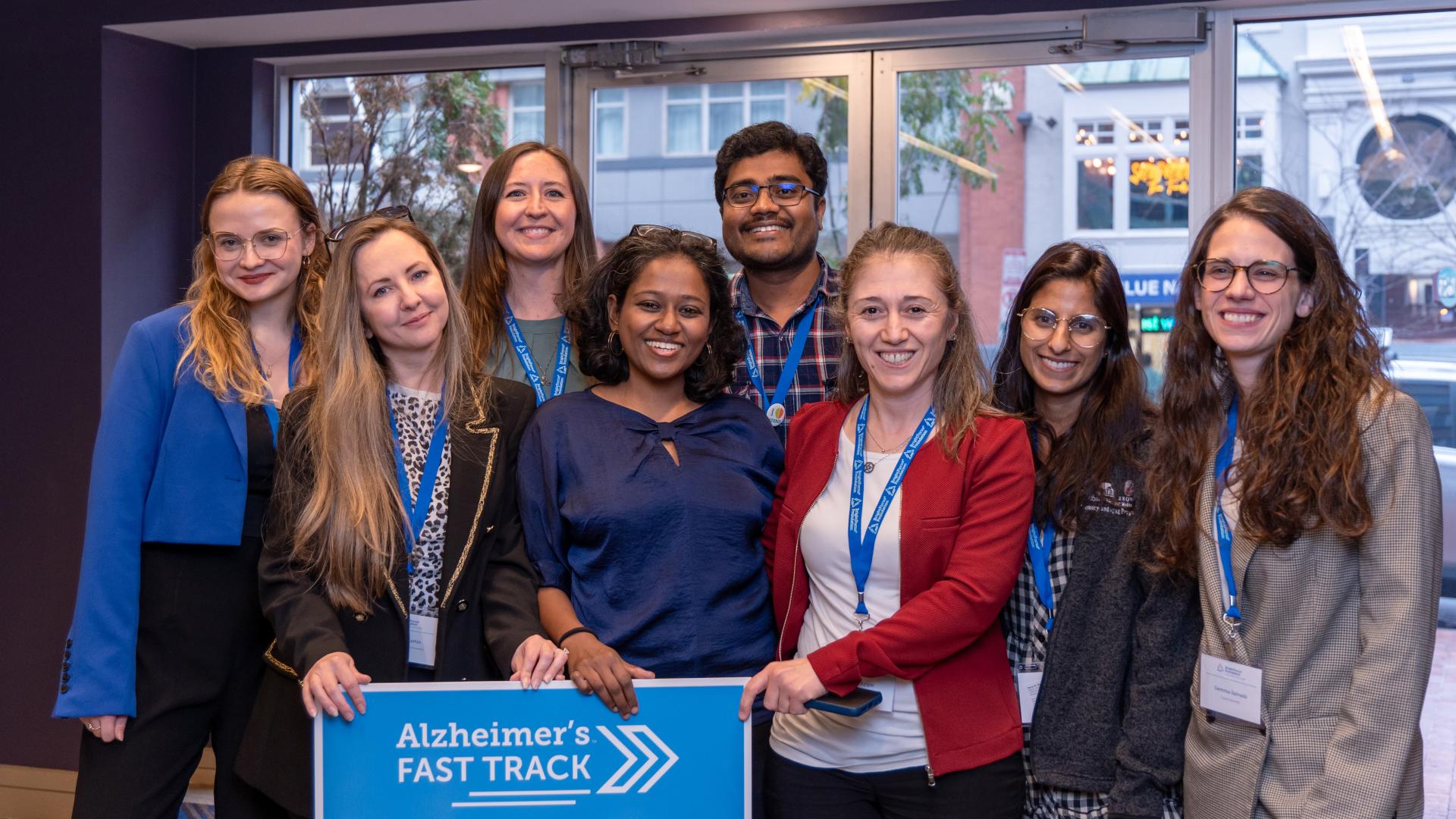
What steps can people take to keep their brains healthy as they age? Does our gut bacteria influence Alzheimer’s risk? And how can promising scientists at the early stages of their careers studying Alzheimer’s disease secure grant funding to move their research forward?
These were among the many questions posed at BrightFocus Foundation’s Alzheimer’s Fast Track, an immersive workshop for early-career scientists held Nov. 8-10 in Washington, D.C. As an official pre-meeting to the Society for Neuroscience annual meeting, this year’s sold-out event convened 80 participants from 19 U.S. states and six countries, including Japan, Spain, and Sweden.
“Discovering new treatments, prevention mechanisms, and ultimately a cure for Alzheimer’s disease requires insights across diverse areas of expertise from scientists around the world,” said BrightFocus President and CEO Stacy Pagos Haller. “The dedication and enthusiasm of the researchers at Alzheimer’s Fast Track is inspiring and gives me great optimism for a future without Alzheimer’s disease.”
Co-chairs for this year’s workshop were Frank LaFerla, PhD, dean of the School of Biological Sciences and Chancellor’s Professor in the department of neurobiology and behavior at the University of California, Irvine; Cynthia Lemere, PhD, associate professor of neurology in the Ann Romney Center for Neurologic Diseases at Brigham and Women’s Hospital and Harvard Medical School; Sharyn Rossi, PhD, director of neuroscience programs at BrightFocus Foundation; and Harry W.M. Steinbusch, PhD, a professor in cellular and translational neuroscience at Maastricht University in the Netherlands.
Twenty-four expert presenters from institutions including Mayo Clinic, Brigham and Women’s Hospital, and Washington University in St. Louis led the group in discussions around the biggest ideas and novel approaches to Alzheimer’s disease, including new treatments, how to combat cellular senescence — damaged cells that are thought to contribute to Alzheimer’s — and inflammaging, persistent, low-grade inflammation that develops with age. A recurring theme was how to develop Alzheimer’s treatments that are personalized for all populations. Discovering the variances in how Alzheimer’s affects people from various racial and ethnic backgrounds will lead to better treatment options for all.
On the last day, the tables turned. Students applied their learnings by presenting a 15-minute grant proposal pitch for a hypothetical research idea to a panel of experts.
For Zahra Shirzadi, PhD, a research fellow at Mass General Brigham and Harvard Medical School, the program was as much a learning opportunity as a unique chance to connect with experts in the field.
“Because Alzheimer’s disease research is such a multidisciplinary field, it requires people from different areas of expertise to work together to find a solution. This includes neurologists, radiologists, pathologists, engineers, physicists, biochemists. Alzheimer’s Fast Track creates an environment for people to come together, work together on an idea to push the field forward and find a cure for Alzheimer’s disease,” she said.
Dr. Shirzadi, who received a grant from Alzheimer’s Disease Research earlier this year, is studying ways to identify patients most at risk for severe side effects of anti-amyloid drugs. The goal is to help guide clinicians to find personalized treatments for patients.
A Growing Epidemic
More than 6.7 million Americans older than 65 have Alzheimer’s disease. By 2050, this number is projected to reach 12.7 million, unless scientists develop new approaches to prevent or cure the disease. Alzheimer’s Fast Track equips scientists with the skills they need to successfully apply for funding from government and private sources, including BrightFocus Foundation’s Alzheimer’s Disease Research program, to move their promising research ideas forward. Since its founding in 2008, the workshop has educated and trained more than 500 scientists from over 25 countries since its inception.
Among the expert speakers this year was Donald F. Weaver, MD, PhD, a clinical neurologist at the University of Toronto, who discussed his industry-changing hypothesis characterizing Alzheimer’s as an autoimmune disease. This idea has led to new ways of thinking about the disease and opened new avenues for study and treatment.
Dr. Weaver is himself a past recipient of an Alzheimer’s Disease Research award. In 2007, he received a $1 million grant to study protein misfolding in Alzheimer’s disease and explore the possibility of a single, unified treatment approach. This funding helped catalyze the development of potential new drugs to treat Alzheimer’s disease and inspired his hypothesis about the disease origins.
“The future of Alzheimer’s disease research is bright. But to ensure its success, we need bright researchers at the helm. This event nurtures them and ensures that we will have these people leading us forward,” Dr. Weaver said.
A range of participants attended this year’s workshop—from undergraduate students, graduate students, and postdoctoral fellows to assistant and full professors—to learn about the latest research findings, network with peers, and transition from one area of expertise into the sphere of Alzheimer’s disease and related dementia research.
To increase access to educational programs like Alzheimer’s Fast Track, BrightFocus offers travel fellowships for scientists, including those from groups that are underrepresented in the field. Twenty-five participants from under-represented populations received diversity travel grants/registration waivers to attend this year’s program.
Recognizing Alzheimer’s Disease Research Grant Recipients
Following the workshop, BrightFocus held a networking reception and awards ceremony honoring the 26 recipients of 2023 Alzheimer’s Disease Research grants, including the two grantees with the highest-scoring proposals from the Alzheimer’s Disease Research Scientific Review Committee.
Zahra Shirzadi, PhD, received the Dr. Edward H. Koo Postdoctoral Fellowship Award for Alzheimer’s Disease Research and David Gate, PhD, of Northwestern University, received the Distinguished Investigator Award for Alzheimer’s Disease Research.
What a privilege to have been a part of the @_BrightFocus #AlzFastTrack 💙 Truly a once in a lifetime opportunity to connect with some of the best trainees and faculty in AD research! Winning the grant proposal contest was just the cherry on top of an outstanding workshop.🥳 pic.twitter.com/vPeeI14lFP
— Lindsey Kuchenbecker (@Lindseykuchen) November 11, 2023
It has been an absolute pleasure to attend the @_BrightFocus #AlzFastTrack in Washington this last week!
Great opportunity to meet highly motivated peers and the nicest mentors in the #Alzheimer‘s field. pic.twitter.com/SpLQPcoqWb— Gemma Salvadó (@gesalbla) November 12, 2023
My first @_BrightFocus #ALZFastTrack: an amazing opportunity for young researchers to network, collaborate and learn science, grant writing, presentation skills, work-life values. So grateful to have been part of this, to mentor bright researchers! Look forward to next year! pic.twitter.com/TnBz5lIgV5
— Heidi Jacobs Lab (@HeidiJacobsLab) November 12, 2023
The time has finally come! @_BrightFocus #AlzFastTrack already off to a great start
✅ Great grant writing advice @clemere99
✅ Building success as an ESI @FrankLaFerla
✅ Empowering presentation skills @ActToCap
✅ Great seatmates @MaluTansey @Lindseykuchen @SaraRoseDunlop… pic.twitter.com/nbEFrJLbdb— Prof. Melissa E. Murray 📸🔬 (@DrNeuroChic) November 8, 2023
Had such an amazing experience at #AlzFastTrack with all the fantastic science, inspiring talks and amazing people to meet. Thanks @_BrightFocus for such a unique experience and Happy 50th birthday!! https://t.co/9Q2R2LCkDe pic.twitter.com/DB11DKkbNj
— Ghazaleh Eskandari-Sedighi (@GhazalehEsk) November 11, 2023
Excited to kickoff #SfN23 with the #AlzFastTrack pre conference sponsored by @_BrightFocus! I can’t wait to work with my group for our mock grant proposal on vascular contributions to AD and connect with leaders in the field like Dr. @CGster! #BlackinNeuro #futurePI pic.twitter.com/jypa2HebUs
— Cellas A Hayes, PhD (@c3llas) November 8, 2023
This year’s expert speakers were:
|
|
About BrightFocus Foundation
BrightFocus Foundation is a premier global nonprofit funder of research to defeat Alzheimer’s, macular degeneration, and glaucoma. Through its flagship research programs — Alzheimer’s Disease Research, Macular Degeneration Research, and National Glaucoma Research— the Foundation has awarded nearly $300 million in groundbreaking research funding over the past 51 years and shares the latest research findings, expert information, and resources to empower the millions impacted by these devastating diseases. Learn more at brightfocus.org.
Disclaimer: The information provided here is a public service of BrightFocus Foundation and is not intended to constitute medical advice. Please consult your physician for personalized medical, dietary, and/or exercise advice. Any medications or supplements should only be taken under medical supervision. BrightFocus Foundation does not endorse any medical products or therapies.




